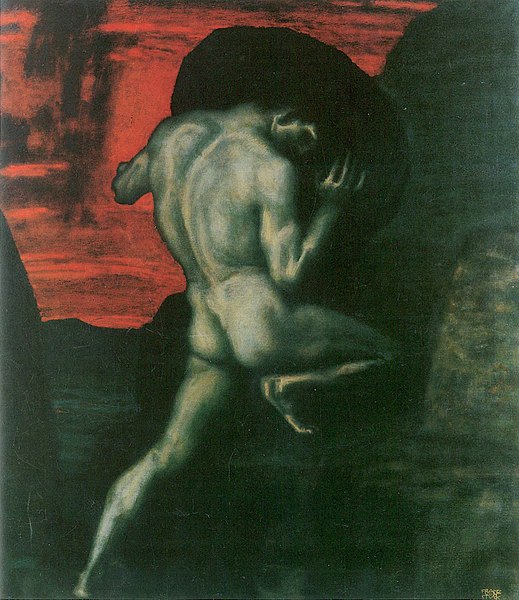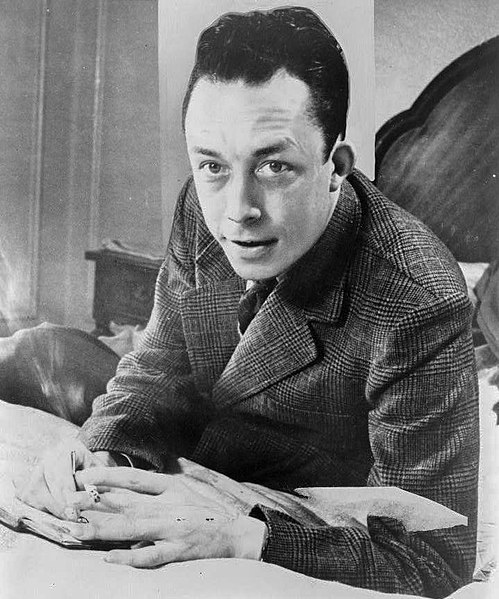Martin Buber was an Austrian-Jewish and Israeli philosopher best known for his philosophy of dialogue, a form of existentialism centered on the distinction between the I–Thou relationship and the I–It relationship. Born in Vienna, Buber came from a family of observant Jews, but broke with Jewish custom to pursue secular studies in philosophy. He produced writings about Zionism and worked with various bodies within the Zionist movement extensively over a nearly 50-year period spanning his time in Europe and the Near East. In 1923, Buber wrote his famous essay on existence, Ich und Du, and in 1925 he began translating the Hebrew Bible into the German language reflecting the patterns of the Hebrew language.
Martin Buber
Martin Buber, Yitzhak Ben Zvi, and Leo Herman in Jerusalem (1915)
Martin Buber in Israel (1962)
Martin Buber's house (1916–38) in Heppenheim, Germany. Now the headquarters of the ICCJ.
Existentialism is a form of philosophical inquiry that explores the issue of human existence. Existentialist philosophers explore questions related to the meaning, purpose, and value of human existence. Common concepts in existentialist thought include existential crisis, dread, and anxiety in the face of an absurd world and free will, as well as authenticity, courage, and virtue.
Sisyphus, the symbol of the absurdity of existence, painting by Franz Stuck (1920)
French philosophers Jean-Paul Sartre and Simone de Beauvoir
French philosopher, novelist, and playwright Albert Camus
Adolphe Menjou (left) and Kirk Douglas (right) in Paths of Glory (1957)








